Have you ever been frustrated while following a new recipe?
 Photo by Dan Gold on Unsplash
Photo by Dan Gold on UnsplashOr tried to assemble a piece of furniture, but got lost halfway?
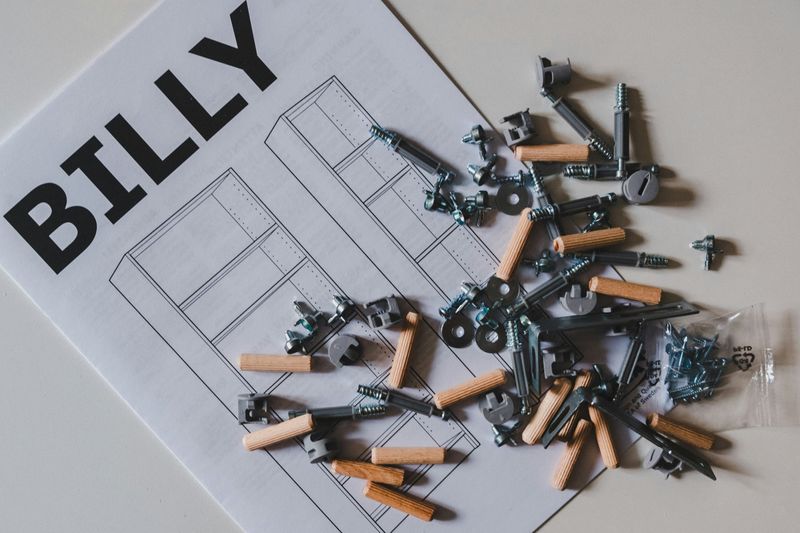 Photo by Semyon Borisov on Unsplash
Photo by Semyon Borisov on UnsplashWhat made the process so difficult? Perhaps the instructions were not clear, the photos did not match the instructions, the steps were missing, or the organization was poor.
This is when a technical writer can help!
Technical writers are responsible for creating manuals and recipes that we commonly use. Pursuing a career in technical writing can give you a chance to create or improve these documents that confuse readers.
What is technical writing?
Review the video clip below, "An Explanation of Technical Writing", to learn more about the job of a technical writer.
Do you think you'd enjoy the technical writing field? Check out this Byte: Should I be a technical writer?
Quiz
What is the main goal of technical writers?
What you will learn in a technical writing program?
When you study technical writing, you will gain or improve several skills.
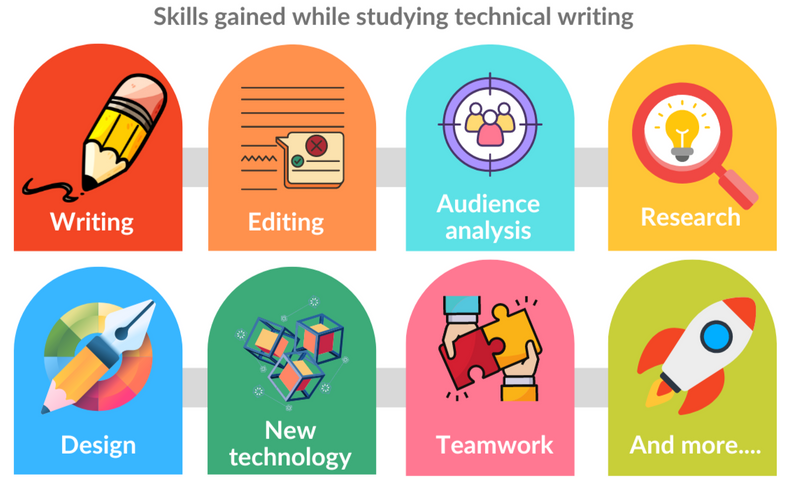 Image created by Adeesha Hack under Creative Commons License CC0
Image created by Adeesha Hack under Creative Commons License CC0
Writing: Convey complex technical information clearly and concisely.
Editing and proofreading: Ensure documents are clear and accurate.
Audience analysis: Identify the needs, knowledge level, and expectations of your readers.
Research skills: Do research to gather information.
Design: Create attractive documents for "readability".
Technology: Use various tools and software commonly used in the field.
Teamwork: Collaborate effectively and communicate clearly with others.
Learning: Be adaptable and willing to learn new skills and technologies to stay current in the field.
Together, these skills will help you to produce effective pieces of information for the people using it.
Quiz
As a technical writer, what is the best way to meet the needs and expectations of your audience?
Where can you study technical writing?
You can study technical writing:
At universities
At colleges
Through online courses
By self-study
If you want to become a technical writer, it's a good idea to get an educational credential (certificate, diploma or degree). If you have a credential, your employer knows you have training in this field.
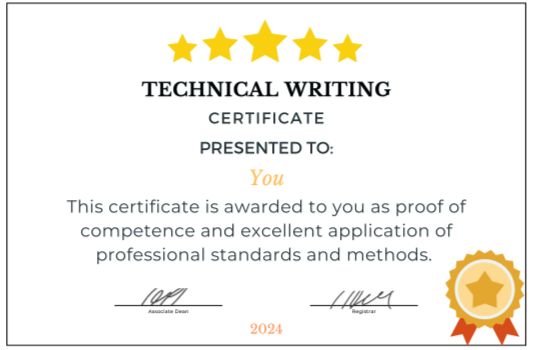 Image created by Adeesha Hack under Creative Commons License CC0
Image created by Adeesha Hack under Creative Commons License CC0
How do I choose the "right" program?
Finding a technical writing program that is right for you may be daunting. Many technical programs exist.
You can find technical programs or courses by doing an online search. Type "technical writing programs" to find out where you can study near your home or online.
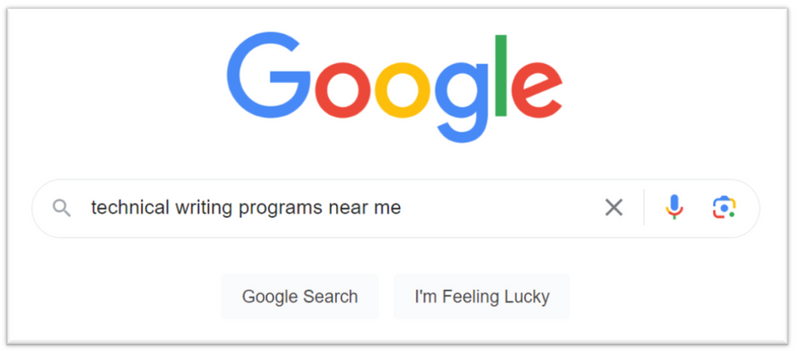 Image created by Adeesha Hack under Creative Commons License CC0
Image created by Adeesha Hack under Creative Commons License CC0
Many institutions offer certificates, diploma and degrees in the technical writing field.
You don't necessarily need to register in a full program right away.
Get started on your technical writing journey

Check out job postings. Focus on the "job duties" and "qualifications". Note the salary to a range how much you be paid as a new or seasoned technical writer. This will also give you an idea of the industries in which you could work.

Write a short technical document of your own. Suggestions: How to play a (choose a game); How to operate (choose an appliance); How to make (choose a recipe). Alternatively, review a document already written and think how you would improve it.

Research the types of documents technical writers create. You can get a head start on expectations.

Take one technical writing course to determine if you'll enjoy an entire program. Talk to the teacher about what to expect in the field.
Quiz
In what ways could you determine if a technical writing career is for you? Choose all that apply:
How long are technical writing programs?
Studying technical writing varies from months to years, depending on the credential you are hoping to get. You may choose to only complete a few courses, or to achieve a credential. Use the following as a guide, but it is best you complete your own research:
Courses: usually, courses are three to four months (30 to 45 hours)
Certificate programs: one year of study
Diploma programs: two years of study
Degree programs: three to four years of study
Programs are offered full-time or part-time.

Where can you work as a technical writer?
Technical writers can work in a variety of industries and environments, wherever there is a need for clear and concise communication of technical information:
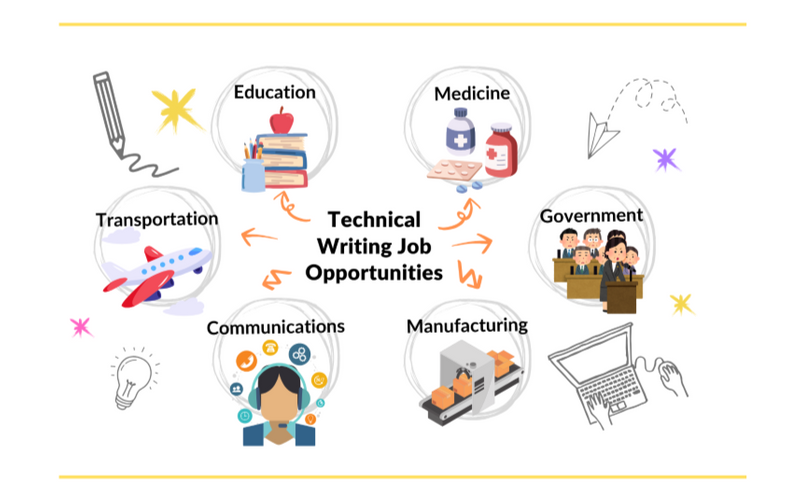 Image created by Adeesha Hack under Creative Commons License CC0
Image created by Adeesha Hack under Creative Commons License CC0
Who would make the best technical writer?
 Ava: Highly organized, detail-oriented, with a calm and methodical approach. Proactive, collaborative, and consistently produces high-quality documentation.
Ava: Highly organized, detail-oriented, with a calm and methodical approach. Proactive, collaborative, and consistently produces high-quality documentation.
 Sarah: Highly analytical, precise, prefers working independently, but sometimes overanalyzes, which can slow down the process.
Sarah: Highly analytical, precise, prefers working independently, but sometimes overanalyzes, which can slow down the process.
 Juan: Creative thinker with innovative approaches to documentation. Can stray from standard formats and may need direction to align creativity with project requirements.
Juan: Creative thinker with innovative approaches to documentation. Can stray from standard formats and may need direction to align creativity with project requirements.
 Michael: Enthusiastic and adaptable, but prone to taking on too many tasks, resulting in missed deadlines and inconsistent quality.
Michael: Enthusiastic and adaptable, but prone to taking on too many tasks, resulting in missed deadlines and inconsistent quality.
Quiz
Select the candidate that would make the best technical writer.
Take Action
 To learn more about whether you should take a program in technical writing, complete the following tasks:
To learn more about whether you should take a program in technical writing, complete the following tasks:
Your feedback matters to us.
This Byte helped me better understand the topic.
